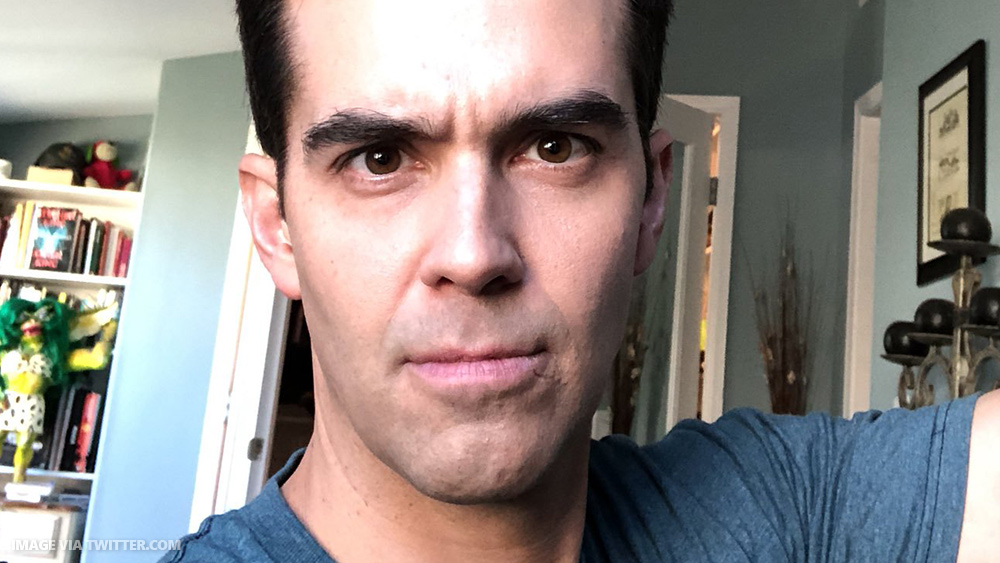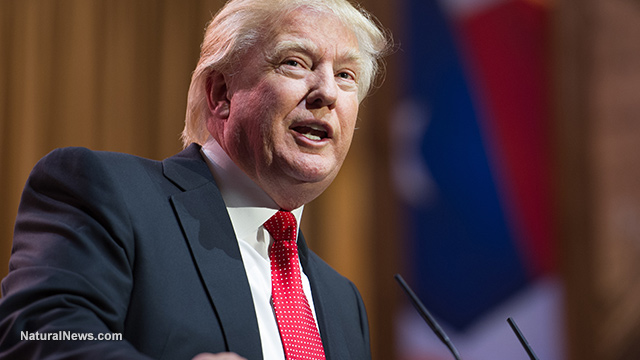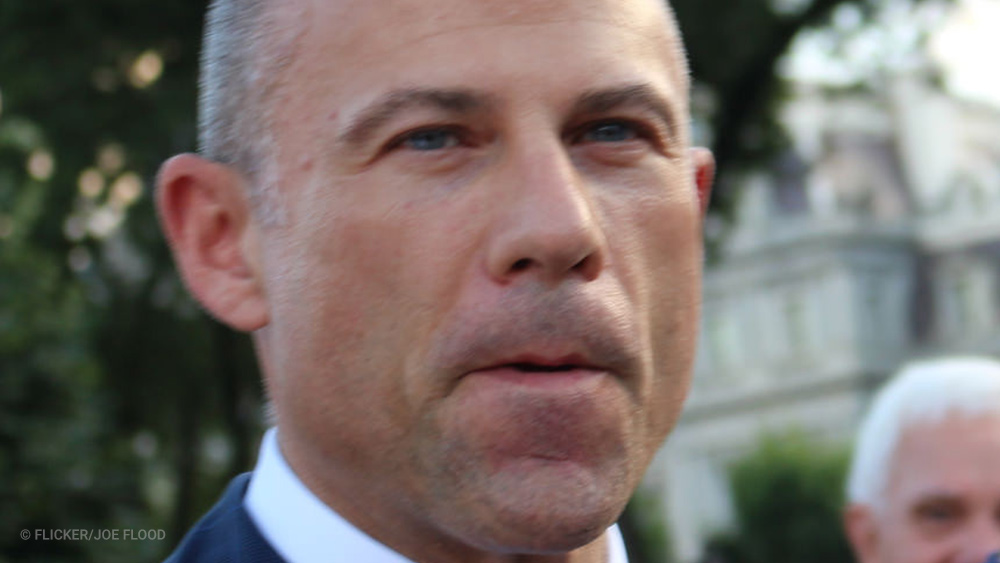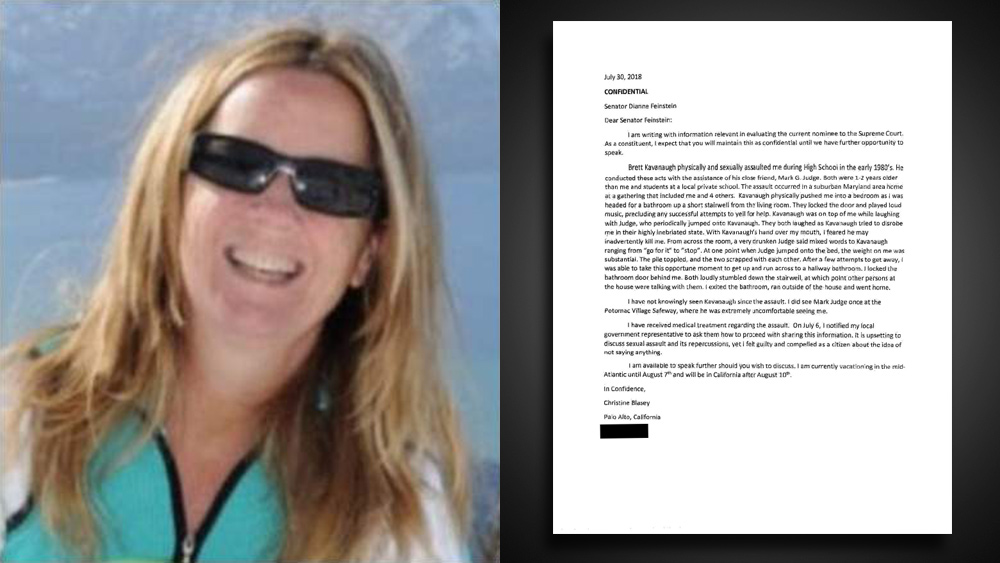WashPost is richly rewarded for false news about Russia threat while public is deceived
01/04/2017 / By Natural News Editors

In the past six weeks, the Washington Post published two blockbuster stories about the Russian threat that went viral: one on how Russia is behind a massive explosion of “fake news,” the other on how it invaded the U.S. electric grid. Both articles were fundamentally false. Each now bears a humiliating editor’s note grudgingly acknowledging that the core claims of the story were fiction: The first note was posted a full two weeks later to the top of the original article; the other was buried the following day at the bottom.
(Article by Glenn Greenwald, republished from TheIntercept.com)
The second story on the electric grid turned out to be far worse than I realized when I wrote about it on Saturday, when it became clear that there was no “penetration of the U.S. electricity grid” as the Post had claimed. In addition to the editor’s note, the Russia-hacked-our-electric-grid story now has a full-scale retraction in the form of a separate article admitting that “the incident is not linked to any Russian government effort to target or hack the utility” and there may not even have been malware at all on this laptop.
But while these debacles are embarrassing for the paper, they are also richly rewarding. That’s because journalists — including those at the Post — aggressively hype and promote the original, sensationalistic false stories, ensuring that they go viral, generating massive traffic for the Post (the paper’s executive editor, Marty Baron, recently boasted about how profitable the paper has become).
After spreading the falsehoods far and wide, raising fear levels and manipulating U.S. political discourse in the process (both Russia stories were widely hyped on cable news), journalists who spread the false claims subsequently note the retraction or corrections only in the most muted way possible, and often not at all. As a result, only a tiny fraction of people who were exposed to the original false story end up learning of the retractions.
Baron himself, editorial leader of the Post, is a perfect case study in this irresponsible tactic. It was Baron who went to Twitter on the evening of November 24 to announce the Post’s exposé of the enormous reach of Russia’s fake news operation, based on what he heralded as the findings of “independent researchers.” Baron’s tweet went all over the place; to date, it has been re-tweeted more than 3,000 times, including by many journalists with their own large followings:
Russian propaganda effort helped spread fake news during election, say independent researchers https://t.co/3ETVXWw16Q
— Marty Baron (@PostBaron) 25 de noviembre de 2016
But after that story faced a barrage of intense criticism — from Adrian Chen in the New Yorker (“propaganda about Russia propaganda”), Matt Taibbi in Rolling Stone (“shameful, disgusting”), my own article, and many others — including legal threats from the sites smeared as Russian propaganda outlets by the Post’s “independent researchers” — the Post finally added its lengthy editor’s note distancing itself from the anonymous group that provided the key claims of its story (“The Post … does not itself vouch for the validity of PropOrNot’s findings” and “since publication of the Post’s story, PropOrNot has removed some sites from its list”).
What did Baron tell his followers about this editor’s note that gutted the key claims of the story he hyped? Nothing. Not a word. To date, he has been publicly silent about these revisions. Having spread the original claims to tens of thousands of people, if not more, he took no steps to ensure that any of them heard about the major walk back on the article’s most significant, inflammatory claims. He did, however, ironically find the time to promote a different Post story about how terrible and damaging Fake News is:
‘Pizzagate’ shows how fake news hurts real people https://t.co/cOh7RZ4RqK
— Marty Baron (@PostBaron) 26 de noviembre de 2016
Whether the Post’s false stories here can be distinguished from what is commonly called “Fake News” is, at this point, a semantic dispute, particularly since “Fake News” has no cogent definition. Defenders of Fake News as a distinct category typically emphasize intent in order to differentiate it from bad journalism. That’s really just a way of defining Fake News so as to make it definitionally impossible for mainstream media outlets like the Post ever to be guilty of it (much the way terrorism is defined to ensure that the U.S. government and its allies cannot, by definition, ever commit it).
But what was the Post’s motive in publishing two false stories about Russia that, very predictably, generated massive attention, traffic, and political impact? Was it ideological and political — namely, devotion to the D.C. agenda of elevating Russia into a grave threat to U.S. security? Was it to please its audience — knowing that its readers, in the wake of Trump’s victory, want to be fed stories about Russian treachery? Was it access and source servitude — proving it will serve as a loyal and uncritical repository for any propaganda intelligence officials want disseminated? Was it profit — to generate revenue through sensationalistic click-bait headlines with a reckless disregard to whether its stories are true? In an institution as large as the Post, with numerous reporters and editors participating in these stories, it’s impossible to identify any one motive as definitive.
Whatever the motives, the effects of these false stories are exactly the same as those of whatever one regards as Fake News. The false claims travel all over the internet, deceiving huge numbers into believing them. The propagators of the falsehoods receive ample profit from their false, viral “news.” And there is no accountability of the kind that would disincentivize a repeat of the behavior. (That the Post ultimately corrects its false story does not distinguish it from classic Fake News sites, which also sometimes do the same.)
And while it’s true that all media outlets make mistakes, and that even the most careful journalism sometimes errs, those facts do not remotely mitigate the Post’s behavior here. In these cases, they did not make good faith mistakes after engaging in careful journalism. With both stories, they were reckless (at best) from the start, and the glaring deficiencies in the reporting were immediately self-evident (which is why both stories were widely attacked upon publication).
As this excellent timeline by Kalev Leetaru documents, the Post did not even bother to contact the utility companies in question — the most elementary step of journalistic responsibility — until after the story was published. Intelligence officials insisting on anonymity — so as to ensure no accountability — whispered to them that this happened, and despite how significant the consequences would be, they rushed to print it with no verification at all. This is not a case of good journalism producing inaccurate reporting; it is the case of a media outlet publishing a story that it knew would produce massive benefits and consequences without the slightest due diligence or care.
The most ironic aspect of all this is that it is mainstream journalists — the very people who have become obsessed with the crusade against Fake News — who play the key role in enabling and fueling this dissemination of false stories. They do so not only by uncritically spreading them, but also by taking little or no steps to notify the public of their falsity.
The Post’s epic debacle this weekend regarding its electric grid fiction vividly illustrates this dynamic. As I noted on Saturday, many journalists reacted to this story the same way they do every story about Russia: They instantly click and re-tweet and share the story without the slightest critical scrutiny. That these claims are constantly based on the whispers of anonymous officials and accompanied by no evidence whatsoever gives those journalists no pause at all; any official claim that Russia and Putin are behind some global evil is instantly treated as Truth. That’s a significant reason papers like the Post are incentivized to recklessly publish stories of this kind. They know they will be praised and rewarded no matter the accuracy or reliability because their Cause — the agenda — is the right one.
On Friday night, immediately after the Post’s story was published, one of the most dramatic pronouncements came from the New York Times’s editorial writer Brent Staples, who said this:
Now that this story has collapsed and been fully retracted, what has Staples done to note that this tweet was false? Just like Baron, absolutely nothing. Actually, that’s not quite accurate, as he did do something: At some point after Friday night, he quietly deleted his tweet without comment. He has not uttered a word about the fact that the story he promoted has collapsed, and that what he told his 16,000-plus followers — along with the countless number of people who re-tweeted the dramatic claim of this prominent journalist — turned out to be totally false in every respect.
Even more instructive is the case of MSNBC’s Kyle Griffin, a prolific and skilled social media user who has seen his following explode this year with a constant stream of anti-Trump content. On Friday night, when the Post story was published, Griffin hyped it with a series of tweets designed to make the story seem as menacing and consequential as possible. That included hysterical statements from Vermont officials — who believed the Post’s false claim — that in retrospect are unbelievably embarrassing.
VT Gov. Peter Shumlin on Russian hacking attempt: ‘One of the world’s leading thugs, Putin, has been attempting to hack our electric grid.’ pic.twitter.com/liJbVLdT5A
— Kyle Griffin (@kylegriffin1) 31 de diciembre de 2016
That tweet from Griffin — convincing people that Putin was endangering the health and safety of Vermonters — was re-tweeted more than 1,000 times. His other similar tweets — such as this one featuring Vermont Sen. Patrick Leahy’s warning that Putin was trying to “shut down [the grid] in the middle of winter” — were also widely spread.
But the next day, the crux of the story collapsed — the Post’s editor’s note acknowledged that “there is no indication” that “Russian hackers had penetrated the electricity grid” — and Griffin said nothing. Indeed, he said nothing further on any of this until yesterday — four days after his series of widely shared tweets — in which he simply re-tweeted a Post reporter noting an “update” that the story was false without providing any comment himself:
In contrast to Griffin’s original inflammatory tweets about the Russian menace, which were widely and enthusiastically spread, this after-the-fact correction has a paltry 289 re-tweets. Thus, a small fraction of those who were exposed to Griffin’s sensationalistic hyping of this story ended up learning that all of it was false.
I genuinely do not mean to single out these individual journalists for scorn. They are just illustrative of a very common dynamic: Any story that bolsters the prevailing D.C. orthodoxy on the Russia Threat, no matter how dubious, is spread far and wide. And then, as has happened so often, when the story turns out to be false or misleading, little or nothing is done to correct the deceitful effects. And, most amazingly of all, these are the same people constantly decrying the threat posed by Fake News.
A very common dynamic is driving all of this: media groupthink, greatly exacerbated (as I described on Saturday) by the incentive scheme of Twitter. As the grand media failure of 2002 demonstrated, American journalists are highly susceptible to fueling and leading the parade in demonizing a new Foreign Enemy rather than exerting restraint and skepticism in evaluating the true nature of that threat.
It is no coincidence that many of the most embarrassing journalistic debacles of this year involve the Russia Threat, and they all involve this same dynamic. Perhaps the worst one was the facially ridiculous, pre-election Slate story — which multiple outlets (including The Intercept) had been offered but passed on — alleging that Trump had created a secret server to communicate with a Russian bank; that story was so widely shared that even the Clinton campaign ended up hyping it — a tweet that, by itself, was re-tweeted almost 12,000 times.
Computer scientists have apparently uncovered a covert server linking the Trump Organization to a Russian-based bank. pic.twitter.com/8f8n9xMzUU
— Hillary Clinton (@HillaryClinton) 1 de noviembre de 2016
But only a small percentage of those who heard of it ended up hearing of the major walk back and debunking from other outlets. The same is true of The Guardian story from last week on WikiLeaks and Putin that ended up going viral, only to have its retraction barely noticed because most of the journalists who spread the story did not bother to note it.
Beyond the journalistic tendency to echo anonymous officials on whatever Scary Foreign Threat they are hyping at the moment, there is an independent incentive scheme sustaining all of this. That Russia is a Grave Menace attacking the U.S. has — for obvious reasons — become a critical narrative for Democrats and other Trump opponents who dominate elite media circles on social media and elsewhere. They reward and herald anyone who bolsters that narrative, while viciously attacking anyone who questions it.
Indeed, in my 10-plus years of writing about politics on an endless number of polarizing issues — including the Snowden reporting — nothing remotely compares to the smear campaign that has been launched as a result of the work I’ve done questioning and challenging claims about Russian hacking and the threat posed by that country generally. This is being engineered not by random, fringe accounts, but by the most prominent Democratic pundits with the largest media followings.
I’ve been transformed, overnight, into an early adherent of alt-right ideology, an avid fan of Breitbart, an enthusiastic Trump supporter, and — needless to say — a Kremlin operative. That’s literally the explicit script they’re now using, often with outright fabrications of what I say (see here for one particularly glaring example).
They, of course, know all of this is false. A primary focus of the last 10 years of my journalism has been a defense of the civil liberties of Muslims. I wrote an entire book on the racism and inequality inherent in the U.S. justice system. My legal career involved numerous representations of victims of racial discrimination. I was one of the first journalists to condemn the misleadingly “neutral” approach to reporting on Trump and to call for more explicit condemnations of his extremism and lies. I was one of the few to defend Jorge Ramos from widespread media attacks when he challenged Trump’s immigration extremism. Along with many others, I tried to warn Democrats that nominating a candidate as unpopular as Hillary Clinton risked a Trump victory. And as someone who is very publicly in a same-sex, inter-racial marriage — with someone just elected to public office as a socialist — I make for a very unlikely alt-right leader, to put that mildly.
The malice of this campaign is exceeded only by its blatant stupidity. Even having to dignify it with a defense is depressing, though once it becomes this widespread, one has little choice.
But this is the climate Democrats have successfully cultivated — where anyone dissenting or even expressing skepticism about their deeply self-serving Russia narrative is the target of coordinated and potent smears; where, as The Nation’s James Carden documented yesterday, skepticism is literally equated with treason. And the converse is equally true: Those who disseminate claims and stories that bolster this narrative — no matter how divorced from reason and evidence they are — receive an array of benefits and rewards.
That the story ends up being completely discredited matters little. The damage is done, and the benefits received. Fake News in the narrow sense of that term is certainly something worth worrying about. But whatever one wants to call this type of behavior from the Post, it is a much greater menace given how far the reach is of the institutions that engage in it.
Read more at: theintercept.com
Tagged Under: Censorship, fake news, mainstream media, msm, PizzaGate, Washington Post





















